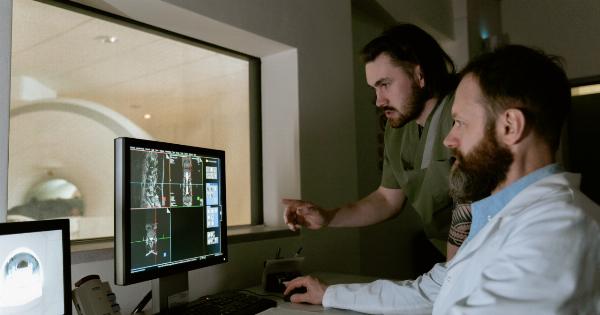Fainting, medically referred to as syncope, is a sudden and temporary loss of consciousness often accompanied by a brief bout of unconsciousness.
This involuntary response occurs when there is a temporary decrease in blood flow to the brain, leading to a lack of oxygen supply. While fainting can be quite common and usually not a cause for concern, there are instances when it may indicate an underlying medical condition.
1. Fainting from a Vasovagal Response
One of the most common reasons for fainting is a vasovagal response. This occurs when the body overreacts to certain triggers, such as sudden pain, emotional distress, or standing up too quickly.
The vagus nerve, responsible for regulating heart rate and blood pressure, becomes overstimulated, leading to a drop in blood pressure and a decrease in heart rate. This, in turn, causes a temporary loss of consciousness. While vasovagal syncope can be scary, it is typically harmless and does not require medical intervention.
2. Cardiac Causes of Fainting
In some cases, fainting may be a sign of an underlying heart condition. Cardiac causes of syncope can include arrhythmias, structural heart problems, or abnormalities in the heart’s electrical system.
When the heart does not pump blood effectively, it can result in a temporary loss of consciousness. If fainting episodes occur suddenly, with no apparent trigger, or are accompanied by other symptoms such as chest pain, palpitations, or shortness of breath, it is important to seek medical attention promptly.
3. Understanding Neurologic Causes
Neurologic conditions can also lead to fainting spells. Conditions such as seizures, migraines, or transient ischemic attacks (TIA) can cause a momentary loss of consciousness.
These episodes are often accompanied by other neurologic symptoms, such as confusion, muscle weakness, or tingling sensations. If you have a history of neurological disorders or experience recurrent fainting episodes along with these symptoms, it is essential to consult with a healthcare professional to determine the underlying cause.
4. Medications and Fainting
Certain medications can increase the risk of fainting. Drugs that lower blood pressure, such as alpha-blockers or diuretics, can cause a sudden drop in blood pressure, leading to fainting episodes.
Similarly, medications that affect the heart’s electrical activity, beta-blockers or anti-arrhythmics, can also contribute to syncope. If you suspect your medications may be causing your fainting episodes, make sure to discuss this with your doctor to explore alternative treatment options.
5. Dehydration and Heat-Related Fainting
Dehydration and overheating can provoke fainting episodes. When the body loses excessive amounts of fluid or is unable to regulate its temperature properly, blood pressure can drop, leading to syncope.
It is crucial to stay adequately hydrated, particularly in hot weather or during intense physical activity, to prevent fainting due to dehydration. If you are prone to heat-related symptoms or engage in activities where hydration can be compromised, take necessary precautions and seek shelter or shade as needed.
6. When to Seek Medical Help
While fainting can often be benign, certain situations require immediate medical attention. These include:.
- Sudden, unexplained fainting episodes
- Fainting accompanied by chest pain or pressure
- Irregular heartbeat or palpitations before or after fainting
- Fainting during physical exertion or exercise
- Injuries sustained during a fainting episode
- Fainting episodes that occur frequently or progressively worsen
- Fainting in older adults, particularly those with underlying medical conditions
If you or someone around you experiences any of these symptoms, it is essential to seek immediate medical attention. A healthcare professional can help identify the cause and provide appropriate treatment.
7. Diagnosing the Underlying Cause
Diagnosing the underlying cause of fainting episodes can involve several steps. Your healthcare provider will likely begin with a thorough medical history and physical examination.
They may also order additional tests, such as electrocardiograms (ECG), echocardiograms, or bloodwork, depending on the suspected cause. In some cases, they may refer you to a specialist, such as a cardiologist or neurologist, to further investigate the issue.
8. Prevention Tips for Fainting
While it may not always be possible to prevent fainting, taking certain precautions can help reduce the risk. These include:.
- Avoiding triggers that cause vasovagal syncope, such as standing up too quickly or prolonged standing without moving
- Staying hydrated, particularly in hot weather or during physical activity
- Avoiding excessive alcohol consumption
- Using caution when taking new medications and discussing side effects with your healthcare provider
- Managing stress and anxiety through relaxation techniques or therapy
- Wearing compression stockings if prescribed by a healthcare professional to improve blood flow
9. When Fainting Is a Cause for Concern
In summary, while fainting can often be harmless and attributed to factors like vasovagal responses or overheating, it is essential to be aware of warning signs that may indicate an underlying medical condition.
Understanding the cause of your fainting episodes can help ensure appropriate treatment and prevent complications. Always consult with a healthcare professional if you are uncertain about your symptoms or if fainting episodes occur under concerning circumstances.
10. Conclusion
Fainting is a complex phenomenon that can have various causes, ranging from benign situations to potentially life-threatening conditions.
By understanding the triggers and associated symptoms, individuals can better evaluate when fainting should be a cause for concern. Prompt medical attention, thorough evaluation, and appropriate management are crucial in ensuring the well-being of those who experience fainting episodes.























